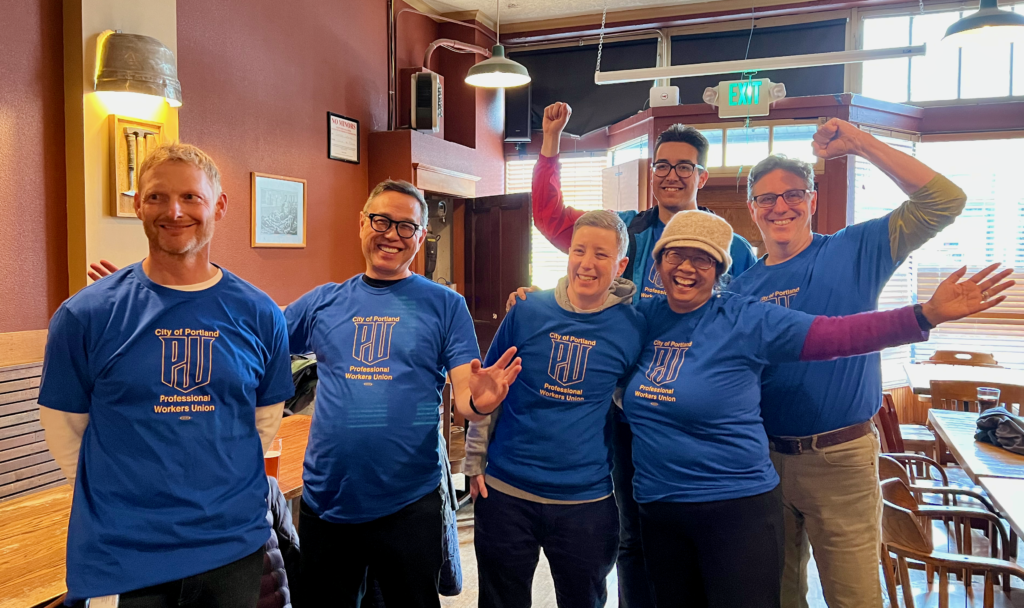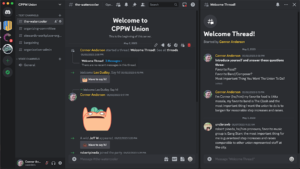
The CPPW was victorious in its election to represent the over 700 professional workers of the City of Portland! The result was 306 for and 68 against. The 385 total ballots represented a 52% turnout of the 712 workers who were allowed to participate in the election under our Memorandum of Understanding with the City. Seven ballots were spoiled (no signature) and four ballots are under dispute with the City. This vote reflects 81.8% support for unionization.
“City workers came out strong to say that we want a voice at the table,” said Kari Koch, CPPW Organizing Committee President. “CPPW members hold critical jobs in the city. We keep programs running, turn raw data into meaningful policy options, balance the books, and are helping guide Portland through the charter reform transitions. Our members work hard for the City and now are organizing for the respect we deserve.”
CPPW’s victory makes it the second largest independent union in the state of Oregon after the farmworker union Pineros y Campesinos Unidos del Noroeste (PCUN) and the ninth largest public sector independent union in the nation.
“This is a historic day for our members and for Portland,” said CPPW Organizing Committee Secretary Robert Pineda. “When budgets have tightened in the past, as they inevitably do, it’s been our members who’ve felt the sting of budget cuts, furloughs, and layoffs first. While our unionized coworkers got the regular salary increases they deserved, and their rightful seat at the table to negotiate how best to deal with budget cuts, our members were lucky if they got two percent annual performance raises and are often the first ones on the chopping block. No more.

